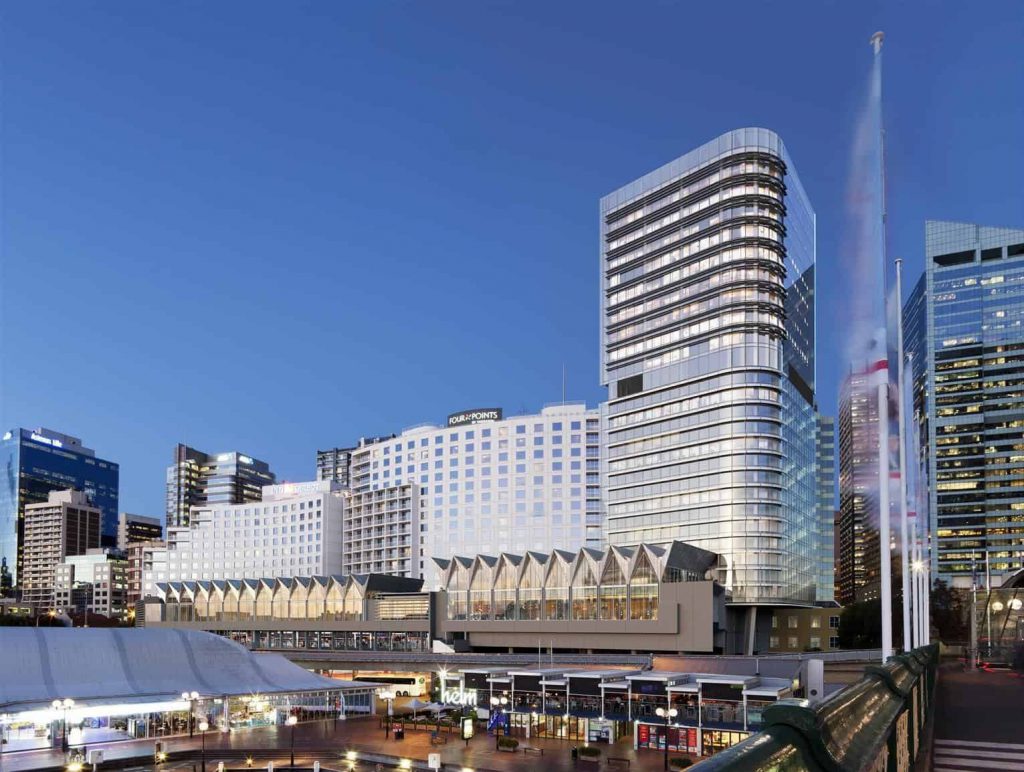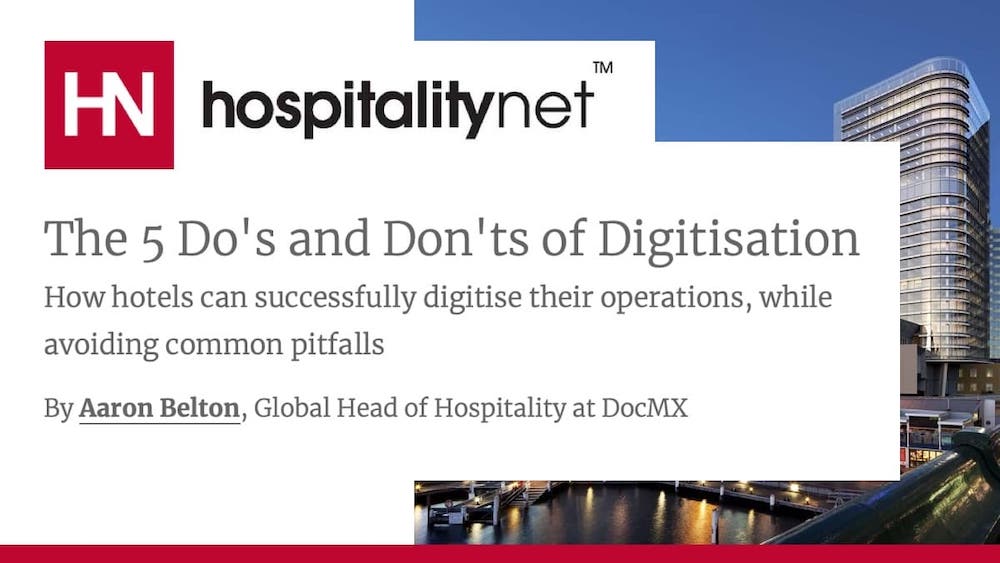All hospitality organizations should look into ways to digitise and automate operations to save resources. Here are 5 common pitfalls to avoid when choosing and implementing an automation software for your hotel – based on the experience of DocMX experts.
Automating and digitising should no longer be viewed by the hospitality industry as buzzwords – as this is happening in hotels across the world this very minute. The idea of adapting and keeping pace may be a daunting experience for some – not knowing where to start, what type of automation software is available, or how best to implement it in the organisation.
Here are 5 key considerations to make, based on our 10 years of experience digitising hotels:
1. DON’T make a bad process electronic
Don’t simply make a time-consuming and siloed process electronic – just because “it’s always been done this way”. Review your policies and ask questions: does this document need to be approved by one manager, then another, or can we save time doing it in parallel? Could we reduce the time to complete the task whilst enabling access to critical information faster? Why is this done differently in each department or property?
Review, analyse, automate, measure and repeat… Then and only then, streamline and standardise across all departments, properties and regions.
2. DO collaborate and share resources across properties
Clustering, also known as complexing or shared service centers, allows organisations to make the most of standardisation and automation by pooling resources in a digital shared environment. Some of our customers like Hilton in Australia have been able to automate up to 70% of revenue auditing, Accounts Receivable and Accounts Payable, thus enabling a staff member from one location to service up to three properties, and in some cases even more.
3. DON’T neglect data security and traceability
In today’s world of remote working, emails and Zoom, sensitive financial or HR information can be open to security and processing issues. Handling this information in a secure structured system with a full ISO-accredited audit trail will solve many of these concerns. Implement data security best practices within the organisation, and choose a technology platform with strong protections against any unauthorised access and data loss.
4. DO look at ways to save paper and the environment
While the guest experience is, in many hotels, already paperless, the back-office can be the forgotten piece of the puzzle. Night Audit reports with hundreds of pages, HR forms, invoices passed between departments, copies for reconciliation and approvals, storing all this paperwork for 5 to 20 years in line with local legislation…
This all represents many man-hours of unnecessary admin work and inefficient communication, as well as significant costs for paper, printer leasing, document archiving and long-term storage. Not to mention the environmental impact.

Based on our decade of experience, a typical 300-room hotel spends over £30,000 on print related activity each year, felling on average 1 tree every week. One of our clients, the exclusive 5-Star FourPoints Darlington Harbour Hotel in Sydney went paperless and saved 2.5 million printed pages yearly. This equates to $1.5million in savings over five years… as well as 1,500 trees saved!
5. DON’T reinvent the wheel – partner with someone who has done it before
There is no need for costly consultants or long-winded projects in order to digitise. Capitalise on past investments and expertise developed and proven over many years by hospitality and technology professionals. Choose a technology and team with a great track record, developed specifically for the hotel industry worldwide.
Get in touch to know more about the DocmX hotel automation technology.
Read the full article on HospitalityNet or below.



